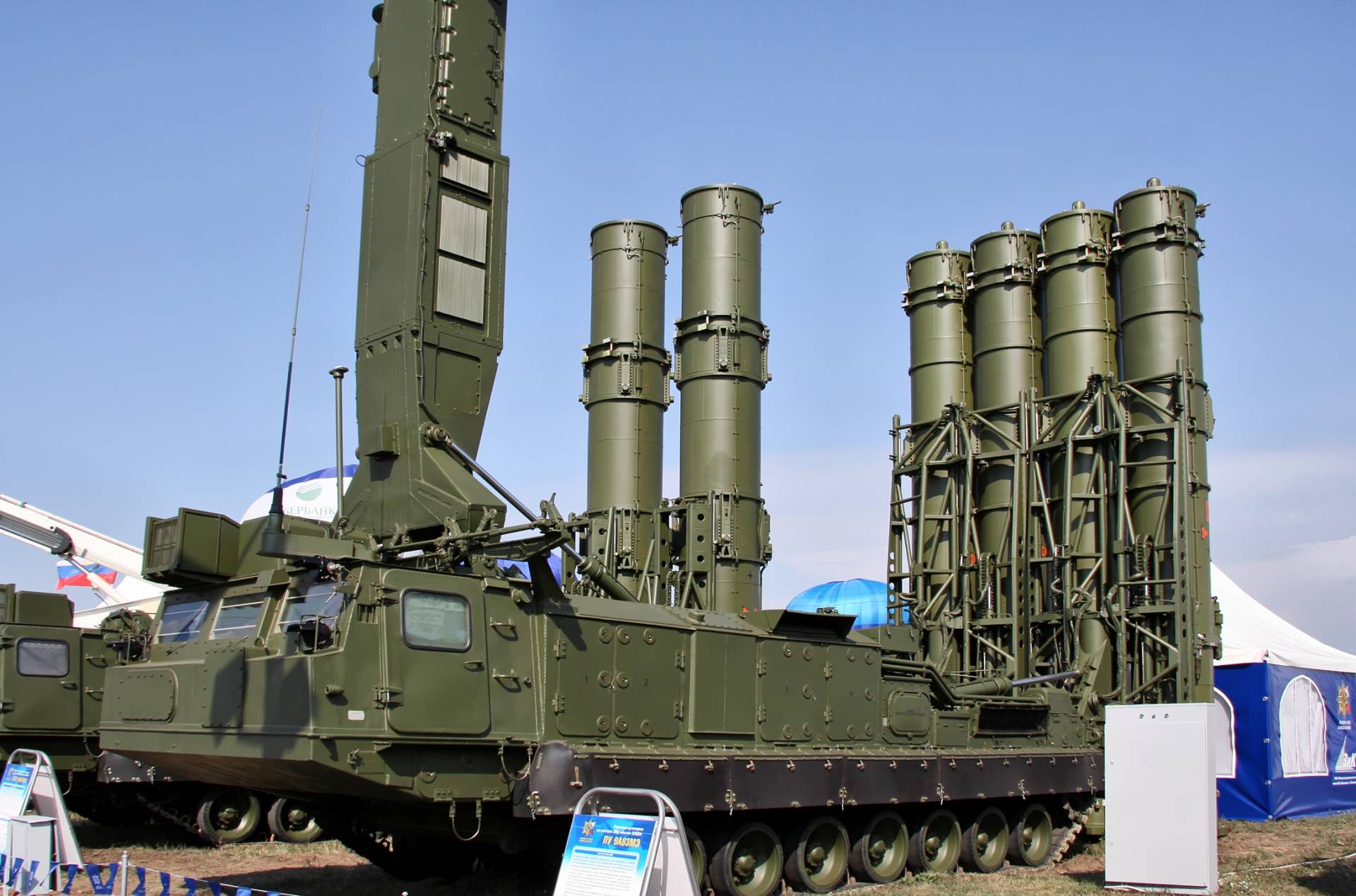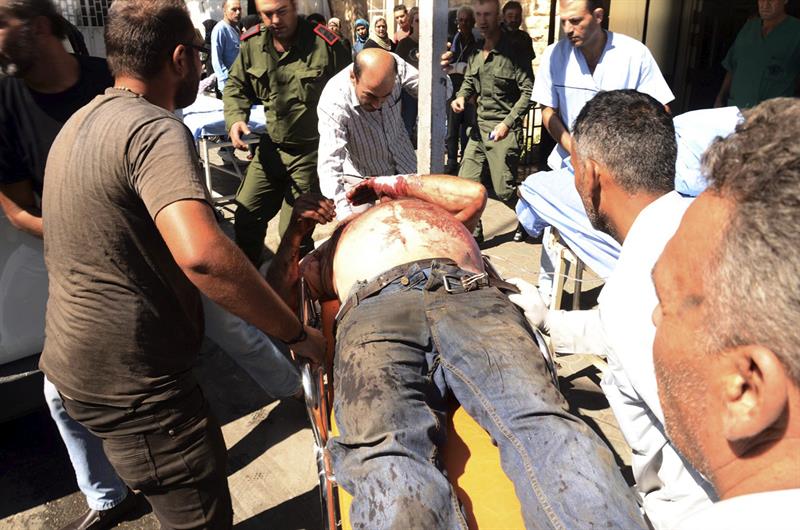After suspending the Agreement on Nuclear Scientific Research due to restrictions imposed by the U.S., the Russian Embassy in Washington announced the strengthening of its presence in Syria.
The Russian Embassy’s Twitter account posted a photo where White House Press Secretary Josh Earnest is pointed at with a Russian S-300 anti-air defense system, alongside a description saying that Russia will do anything to protect its personnel stationed in Syria. The official statement issued by the Russian government reads that the U.S. issued a notification about the suspension of energy cooperation with Russia due to their connection to the events in Ukraine.

The Russian government called these actions ‘hostile’ and responded by suspending the agreement unless the U.S. “reaffirms its willingness to fully restore compliance.”
Russia’s foreign ministry assured that Washington could not be trusted in the modernization and development of Russian nuclear reactors, where all of the work would be carried out by the Russian Federation itself.
All jokes aside, #Russia will take every defensive measure necessary to protect its personnel stationed in #Syria from terrorist threat. pic.twitter.com/6vc4X9lGyT
— Russian Embassy, USA (@RusEmbUSA) October 5, 2016
Russia to fight alongside al-Assad without the U.S.’s intromission
In Syria, the situation also spells heightened tensions, as Moscow sent S-300 air defense systems to be stationed on the battlefront. Because Syrian rebels do not possess any air support, Washington deemed the action as deliberately contradictory to Putin’s statements that the deployment of Russian troops in Syria is aimed at combating terrorists only.
Coincidentally, the remark was made by Josh Earnest, who recognized that neither the Islamic State or al-Qaeda have aircraft at their disposal.

The Russian defense ministry responded by saying that the S-300 is only a defense system, as they can never know which kind of support the terrorists may get in the future. The S-300 is able to take down both tactical and strategic aircraft, as it holds a wide variety of missiles, with a maximum range of 150 miles. The defense system was deployed in the Syrian city of Tartus
So far, Syria is still largely occupied by rebels. Over the past few weeks, the Syrian army has seized large parts of rebel-held territory in Syria’s capital Aleppo. But President Bashar al-Assad argues that rebels should be willing to come to an agreement with the government or else they risk being completely destroyed.
The Syrian president advised that “reconciliation” would be the best alternative, as it has already occurred in many battlefronts in Syria, where opposing rebels have been forced to agree to a truce with al-Assad’s forces.
Aiding the Syrian government with bombings
The offensive on Aleppo was mainly carried out by the Syrian army and by Russian warplanes, as they have been able to reduce rebel settlements to the ground. A spokesperson for the Syrian army announced that airstrikes would not be frequent in order to allow citizens to escape. But it seems that Russian-backed government forces care little for how much strength they use, as the largest hospital in Aleppo was obliterated by bombings last Monday.
Al-Assad claims that government forces never target allied structures or civilians, but it seems that he will never acknowledge anything that will not serve as a justification to expel rebels from the country.

“We never prevented any medical supply or food supply or any other thing from entering east Aleppo. There’s no embargo if that’s what you mean. As a government, we don’t have a policy to destroy hospitals or schools or any such facility,” said the Syrian leader on an interview with Denmark’s TV2 channel.
Al-Assad denies any presence of jihadist groups in Syria, even when the Syrian Observatory for Human Rights reported on Wednesday a blast that left at least 20 casualties near the Turkish border.
The Islamic State claimed responsibility for the bombing in northern Syria, where opposition rebels backed by Turkey were killed in the events. Islamic State news agency Aamaq revealed that it was a suicide car bomber that entered in contact with Syrian rebels, near the village of Atmeh.
Russia seized the opportunity to establish itself in Syria and carry out weapon tests while also providing air support to government forces. But it appears that neither Syrian or Russian military avoid targeting civil infrastructure, even if al-Assad denies so. The Syrian president assures that if it were the government’s fault, he would resign from his 16-year-long term.
The FBI assures that the al-Assad regime has tortured at least 10 European citizens. Physicians for Human Rights reported in 2015 that Syrian government forces were responsible for 97 percent of the killings where the victims were medical workers.
The United Nations calculate that only 8,000 rebels remain in northern Aleppo, who are also accompanied by at least 900 al-Qaeda soldiers. To support international pressure, the United States suspended its cooperation with Russia to negotiate a cease-fire in Syria, which only helped Russia to further increase its presence in the war-torn nation. The U.N. has called for Russia and Syria to stop bombing Aleppo, which would allow al-Qaeda combatants to leave the city.
The S-300 missile defense systems were deployed in case any air support was directed to the rebels, forcing the United States to refrain from sending any aircraft over the Syrian airspace. Maj. Gen. Igor Konashenkov assured that the U.S. would not be contacted for confirmation if they decided to take down an unauthorized foreign aircraft.
Source: The New York Times
